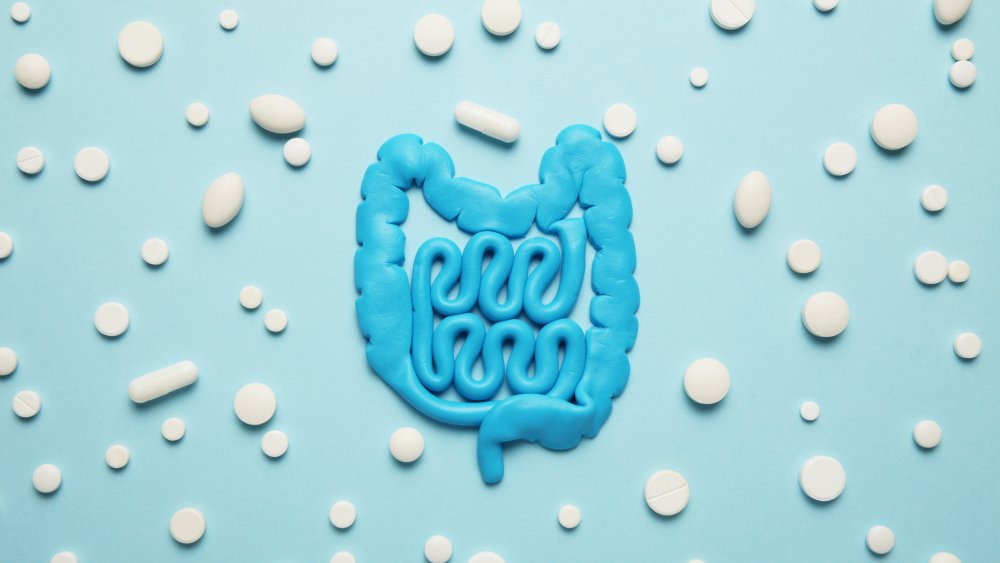The Real Difference Between Prebiotics And Probiotics
These days there is so much talk about gut health that it's kind of hard to keep up. With so many different recommendations regarding what we should and shouldn't be eating, dedicating some time to understanding probiotics and prebiotics is always a good place to start. As Erin Palinski-Wade, a registered dietitian and author of the "2-Day Diabetes Diet", revealed to HuffPost, "It is essential to have both prebiotics and probiotics to promote gut health."
Behnaz Abedi, registered dietitian, Family Practice Care Centre at Women's College Hospital in Canada, agreed, explaining to Women's Health Matters, "Regular consumption of prebiotic and probiotic foods not only assists with digestion, but it can also help eliminate pathogen bacteria that make us sick." She continued, "Most importantly, prebiotics and probiotics work symbiotically in the intestinal tract."
But what exactly is the difference between prebiotics and probiotics?
Prebiotics are food for probiotics
It's easier to understand what prebiotics are if you understand probiotics first. "Probiotics are the 'good' bacteria that live in our guts and promote healthy digestion and also give the immune system a boost," Rebecca Ditkoff, MPH, RD, a New York City-based registered dietitian and founder of Nutrition by RD, explained to Real Simple. "Although your digestive tract naturally produces probiotics, it is beneficial to also consume more foods naturally rich in probiotics to increase your levels and variety of strains of the good bacteria." Some of these foods include kefir, yogurt, kombucha, and sauerkraut.
Prebiotics, on the other hand, are basically food for the good bacteria. "Prebiotics are indigestible parts of carbohydrates that come from our diets," Abedi told Women's Health Matters. "They provide an environment where probiotics, as healthy bacteria, can thrive within our gastrointestinal system," she continued. How do you increase your levels of prebiotics? Your body will get them from many fruits and vegetables, in particular, apples, asparagus, garlic, and onions.
Ultimately, if you feed your body the right amount of probiotics and keep them healthy with the right amount of prebiotics, your gut is going to be much happier.

